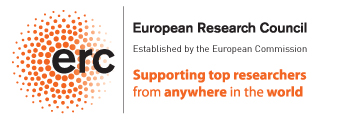Rosie Worsdale is a Postdoctoral Research Associate on Qualitative and Quantitative Social Science: Unifying the Logic of Causal Inference? (QUALITY). This ERC-funded project brings together cutting-edge work in epistemology with the expertise of leading social scientists.
Q. Rosie, you recently joined the QUALITY team. Could you tell us a little about what the project is interested in?
The overall goal of the QUALITY project is to investigate the way in which different principles of causal inference operate in qualitative and quantitative social scientific research, and the possibilities for reconciling and weighing up pieces of evidence which rely on different principles of causal inference. The motivation for the project lies, in large part, in the realm of public policy, and the increasing desire for evidence-based public policy proposals: since good public policy is supposed to have some kind of desirable impact on society, we want to be able to assess, as accurately as possible, whether or not a given policy is likely to have the effect we want it to. Social scientists use a variety of research methods – qualitative, quantitative and some combination of both – to try to offer such assessments. The problem, however, is that these different methods often employ different principles of causal inference to draw their conclusions – and this makes it very difficult to know how different pieces of evidence for the same proposal should be weighed up against each other. The aim of the QUALITY project is to interrogate the epistemological issues underpinning this problem.
Q. How does this topic relate to your own areas of interest? Have you worked on similar topics previously?
My areas of expertise are in feminist theory and social and political philosophy; I am interested in what I see as a basic tension in all kinds of critical social theory between, on the one hand, the difficulties involved in making causal claims about the kinds of social phenomena in which the distortive effects of ideology, epistemic inequality and silencing might be at work – namely, in instances of oppression and domination – and on the other, the political necessity of being able to make systematic causal claims about such phenomena, viz. how they operate and how they can be challenged.
My work on the QUALITY project involves examining this tension as it manifests in social scientific research designed in some way to further emancipation and social justice. Specifically, I want to investigate the way in which critical social theorists can draw on the evidence provided by social scientific research to inform their diagnoses of oppression, domination and injustice, whilst being faithful to the crucial insights from the tradition of critical theory that call into question the methodological and epistemic norms of the more orthodox social scientific methods. The work, then, is a continuation of themes I have worked on previously; but it is also quite a big departure, insofar as I have not worked previously on these kinds of topics in relation to philosophy or social science. So, it’s an exciting combination of familiar ground and new territory.
Q. Which aspects of the project do you find most exciting?
I think I am most excited about working closely with social scientists as part of the project. It is quite rare as a philosopher to get the opportunity to think philosophically about social and political issues alongside experts from other disciplines who are motivated by the same concerns as you. The project presents an exciting opportunity for interdisciplinary collaboration on subjects that I am very passionate about. For instance, I am very interested in the theoretical underpinnings of the fraught public debates about the best way to legislate sex work, and the challenges associated with researching this topic in a way that is, methodologically speaking, feminist. Working on the QUALITY project is allowing me to think through these issues in collaboration with social scientists facing these challenges in their own research projects, which is invaluable.
QUALITY is funded by the European Research Council under the European Union’s Horizon 2020 Framework Programme for Research and Innovation (ERC grant agreement no. 715530)




